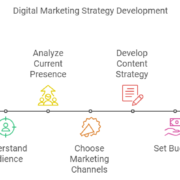
In the contemporary landscape, the realm of event management has undergone a significant transformation, largely propelled by advancements in digital technology. The integration of smartphones, social media, and innovative applications has revolutionized the way events are planned, executed, and experienced. This article explores the intersection of digital technology and event management, with a particular focus on the role of apps in reshaping attendee experiences. From streamlining logistics to fostering engagement and personalization, event management apps have become indispensable tools for organizers seeking to create memorable and impactful events in the digital age.
The Evolution of Event Management
Event management has evolved dramatically over the years, adapting to changing consumer preferences, technological innovations, and market dynamics. From traditional paper-based methods to sophisticated digital solutions, the evolution of event management reflects a shift towards greater efficiency, accessibility, and interactivity. Today, organizers leverage a diverse array of tools and platforms to plan, promote, and execute events, catering to the diverse needs and expectations of attendees in the digital age.
Impact of Digital Technology
Digital technology has had a profound impact on the field of event management, revolutionizing every aspect of the event lifecycle. From online registration and ticketing systems to virtual reality experiences and live streaming capabilities, digital innovations have transformed how events are conceptualized, marketed, and consumed. By leveraging digital tools and platforms, organizers can reach larger audiences, collect valuable data insights, and deliver immersive experiences that resonate with attendees on a deeper level.
Rise of Event Management Apps
The proliferation of smartphones and mobile applications has led to the rise of specialized event management apps designed to streamline the planning process and enhance attendee experiences. These apps just like the social networking app offer a range of features, including agenda management, networking opportunities, interactive maps, and real-time updates, empowering attendees to customize their event experience and stay informed throughout the event lifecycle. By providing organizers with powerful tools for communication, engagement, and feedback, event management apps have become indispensable assets in orchestrating successful events in the digital age.
Enhancing Attendee Engagement
One of the key benefits of event management apps is their ability to enhance attendee engagement through interactive features and personalized content. From live polling and Q&A sessions to gamification elements and social media integration, these apps facilitate meaningful interactions and foster a sense of community among attendees. By empowering participants to actively participate in the event experience, organizers can create immersive and memorable moments that leave a lasting impression and drive loyalty and advocacy for future events.
Streamlining Event Planning Processes
Personalization in Event Experiences
Personalization has become a cornerstone of modern event experiences, driven by the desire to cater to individual preferences and create meaningful connections. Event organizers are leveraging data insights to tailor content, recommendations, and networking opportunities to each attendee’s interests and objectives. By offering customizable agendas, targeted messaging, and interactive features, personalized event experiences not only enhance attendee satisfaction but also increase engagement and drive positive outcomes.
Utilizing Data Analytics for Insights
Data analytics play a crucial role in event management, providing organizers with valuable insights to optimize planning, execution, and performance. By analyzing attendee behaviour, preferences, and feedback, organizers can identify trends, anticipate needs, and make informed decisions to enhance the overall event experience. From tracking registration patterns to measuring engagement metrics, data analytics enable continuous improvement and ensure that events are aligned with attendee expectations and organizational goals.
Integration with Social Media Platforms
Social media integration has become a standard feature in event management, enabling organizers to extend reach, drive engagement, and amplify the impact of their events. By integrating with popular platforms such as Facebook, Twitter, and Instagram, organizers can facilitate real-time communication, promote user-generated content, and create buzz before, during, and after the event. Social media integration also allows for seamless networking opportunities, content sharing, and community building, fostering connections that extend beyond the physical confines of the event venue.
Accessibility and Inclusivity in Digital Events
As digital events become increasingly prevalent, ensuring accessibility and inclusivity for all attendees is paramount. Event organizers are implementing features such as closed captioning, live translation, and audio descriptions to accommodate diverse needs and preferences. By prioritizing accessibility in event design and technology, organizers can create a welcoming and inclusive environment where all participants can fully engage and participate in the event experience, regardless of their abilities or circumstances.
Future Trends in Event Management
Looking ahead, several emerging trends are poised to shape the future of event management. These include the widespread adoption of virtual and hybrid event formats, the integration of immersive technologies such as augmented reality and virtual reality, and the continued emphasis on sustainability and eco-friendly practices. Additionally, advancements in artificial intelligence and machine learning are expected to further enhance personalization, automation, and attendee engagement, ushering in a new era of innovation and possibilities in the field of event management.
Conclusion
In conclusion, the digital age has revolutionized event management, offering organizers unprecedented opportunities to create memorable and impactful experiences for attendees. By embracing personalization, leveraging data analytics, integrating with social media platforms, prioritizing accessibility and inclusivity, and staying attuned to future trends, event organizers can stay ahead of the curve and deliver exceptional events that leave a lasting impression. As technology continues to evolve and consumer expectations evolve, the key to success lies in embracing innovation, fostering meaningful connections, and continuously striving for excellence in event execution.











